I don't think any flower in the world matches a description of what you just said
Iroha is yet another one of those "original anime" series that has been popping up. Competing for the spotlight with Ano Hi Mita Hana no Namae o Boku-tachi wa Mada Shiranai, this tender series has been overshadowed by its counterpart's short and sweet conclusion as well as in the latter's melodramatic crying. This is rather unfortunate; while I do think that Ano Hana was a good series, ultimately its pace was rather lacking. Iroha, on the other hand, hits everything right on the nail.
Graphics-wise, there's really nothing to say. P.A. Works weaves CGI and normal tablet images together nearly seamlessly to create nicely drawn backgrounds. The lines/strokes/details are probably some of the finer that I've seen this year and they combine to make the cast really stand out. Personally, I am still on the lookout for a good wallpaper that includes Ohana, Yuina, and Ohana's mother (was her name Satsuki...?), because they look fantastic in the anime.
Graphics-wise, there's really nothing to say. P.A. Works weaves CGI and normal tablet images together nearly seamlessly to create nicely drawn backgrounds. The lines/strokes/details are probably some of the finer that I've seen this year and they combine to make the cast really stand out. Personally, I am still on the lookout for a good wallpaper that includes Ohana, Yuina, and Ohana's mother (was her name Satsuki...?), because they look fantastic in the anime.
In all seriousness, they could probably take a 240p shot of an episode of Hanasaku Iroha and it would be better than anything from, say, Seikon no Qwaser.
The soundtrack for this series is very very nicely done. It reminds me of Denpa Onna (from I guess the same season, since Iroha was 26 eps) and its OST, where it slowly sneaks in and plays the music to soothe your wounded soul (presumably damaged after watching R-15). It's meant to evoke wonder during the times when life seems most humdrum and dreary, and it does its job well. Both of the OPs are also commendable - the vibrato-less voice takes a while to get used to, but the guitar riffs are just too good to pass up. Definitely a soundtrack to batch download if possible.
Then we come to the story. Ah, the story. Like many others, I thought it was slow - but unlike the others, I held on; after all, I said, although it's slow overall, the pace and story is going along nicely enough to engage my interest. Usagi Drop is also amazingly slow due to its josei nature, but nobody complained about that series. I think it was the same with Iroha.
The characters are very very well developed, become more complex as time goes on, and has multiple, realistic facets. Further, this level of complexity forces a truly human aspect to exude from the series. What we learn is that nobody - NOBODY - is truly a villain or an asshole because they want to, that there is simply no black and white, or even just a pure evil person that likes cats and vice versa. People can be jerks when they want to be, but also angels when they can. This grey/slightly polar aspect makes all of the characters really likeable in the end, regardless of what they may have done in previous episodes - or perhaps because of what they did in previous episodes.
The case is especially true with the main points of conflict - that is, around Ohana, the other girls, and Sui Shijima, Ohana's grandmother. Ohana's metamorphosis (for which the series is centered around) starts out as an overly bold, but optimistic and energetic girl with a penchant for the melodramatic. Right away, however, it gets bent slightly by Ohana's grandmother's strict "just business" stance. As the two continually struggle with each other with their pillar values, it just so happens that their centers start to shift - that is, the two start to grow around each other, much like two plants sharing the same space. They keep what makes them them, but they change slightly over time as they become more accepting of each other and the foreign values that the other places on them. Ohana becomes more and more capable and endearing, while at the same time realizing that things don't have to be "dramatique" for them to be extraordinary. Her grandmother struggles with the fact that she can no longer manage everything by herself and slowly comes to the knowledge that the steadfast group she has made now can run for her.
Then we come to the story. Ah, the story. Like many others, I thought it was slow - but unlike the others, I held on; after all, I said, although it's slow overall, the pace and story is going along nicely enough to engage my interest. Usagi Drop is also amazingly slow due to its josei nature, but nobody complained about that series. I think it was the same with Iroha.
The characters are very very well developed, become more complex as time goes on, and has multiple, realistic facets. Further, this level of complexity forces a truly human aspect to exude from the series. What we learn is that nobody - NOBODY - is truly a villain or an asshole because they want to, that there is simply no black and white, or even just a pure evil person that likes cats and vice versa. People can be jerks when they want to be, but also angels when they can. This grey/slightly polar aspect makes all of the characters really likeable in the end, regardless of what they may have done in previous episodes - or perhaps because of what they did in previous episodes.
The case is especially true with the main points of conflict - that is, around Ohana, the other girls, and Sui Shijima, Ohana's grandmother. Ohana's metamorphosis (for which the series is centered around) starts out as an overly bold, but optimistic and energetic girl with a penchant for the melodramatic. Right away, however, it gets bent slightly by Ohana's grandmother's strict "just business" stance. As the two continually struggle with each other with their pillar values, it just so happens that their centers start to shift - that is, the two start to grow around each other, much like two plants sharing the same space. They keep what makes them them, but they change slightly over time as they become more accepting of each other and the foreign values that the other places on them. Ohana becomes more and more capable and endearing, while at the same time realizing that things don't have to be "dramatique" for them to be extraordinary. Her grandmother struggles with the fact that she can no longer manage everything by herself and slowly comes to the knowledge that the steadfast group she has made now can run for her.
The two opposites collide once more - perhaps to end it all this time
If this sort of depth was limited to only the two stars mentioned above, Iroha would still be considered a great series. However, this hyper-realistic evolution and retention of values through interpersonal interaction extends to every single person in the cast. From the rich girl who's surprisingly kind and can work hard for a goal, to the feckless younger brother always trying to run after his sister while also trying to escape from her shadow, to the older sister trying to break the chain of inheritance that binds her to a place, any place - these characters all show their human side and thus force us to examine ours in turn.
As the characters changed slowly over time or revealed their inner facets; as Ohana, Yuina, and the others all reached the highest peaks and fell to the lowest depths, the seemless interweaving of all these stories in one place elicited a catharsis from me of a magnitude that I had not felt since I watched the girls cry in K-On! or when Tomoya did the same with Ushio in Clannad: After Story. This level of realism and gentleness helped me feel what the characters felt and feel it quite well. For this, I applaud P. A. Works highly for their masterful work.
I talk merely about the characters above, but the development of the plot, its pace, its conclusions, its glory moments, and its conclusion were all excellently executed. The ending tied everything together nicely, the pace was never tiring or filled with fillers, the plot came together on a grand level and was unpredictable, and the inspiring moments were truly that - inspiring. There is little I can take away from this series other than perhaps a lack of focus on some of the characters after their introduction (e.g.: Yuina and the guy who makes random erotic stories). However, the overall picture is too good to miss.
It's rare to find a loyal and understanding friend in one lifetime. These guys found a lot already.
I say that Hanasaku Iroha is masterful in the above praises, but that's because I have no right to call a fresh series a masterpiece or a classic just yet. However, it will - it SHOULD - become a staple in the slice-of-life genre very soon. Hanasaku Iroha teaches us what living an ordinary life is about; that family is merely another word for "the group that you could spend your life with", that even the most ordinary of days and ideals can become extraordinary ones, seen from the right perspective. Iroha reminded me of why slice-of-life series exist, other than to have bases for stuffing romance, comedy, and perverted stuff into 12 episodes. It showed me the wonder of sitting back and basking in the simplicity and grandeur of everyday life.
This series does NOT sit in the shadow of Clannad, like many others of its genre. It forges out its own path, forgoing the romance to show us what life is about, what becoming mature is all about. In this sense, it is a must-see for any anime watcher. This series is most definitely one of the best series of this year. Make time and some hot cocoa for this series. You won't regret it.
And so we keep on running, off into the future...
-----
For those of you who want a really sentimental 30 minutes in your life, instead of side-recommending a manga I'll side-recommend an OVA: Kowarekake no Orgel. The premise (finding a broken robot and raising it) seems kind of mediocre on face but trust me, it's all worth it. Enjoy!
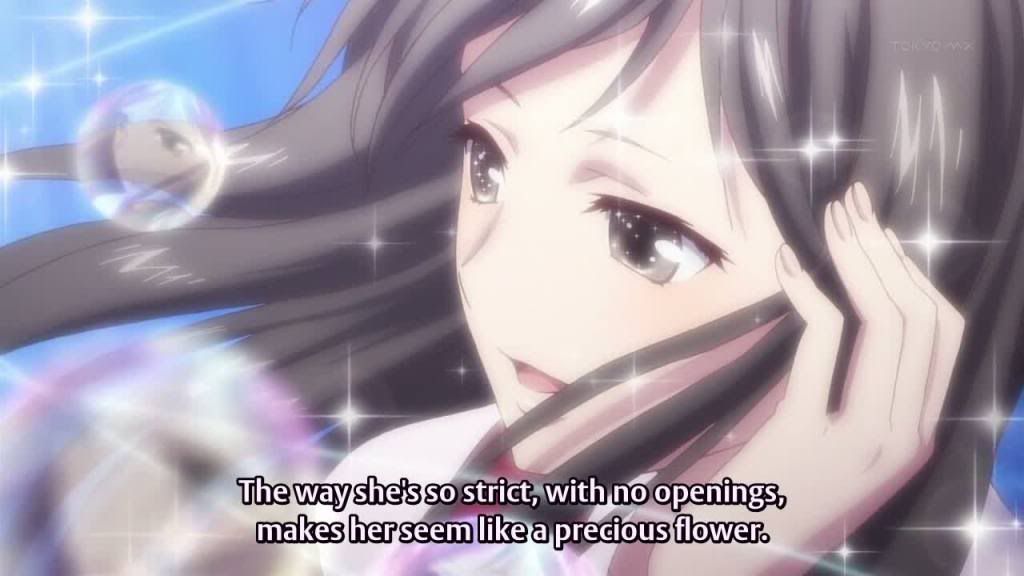
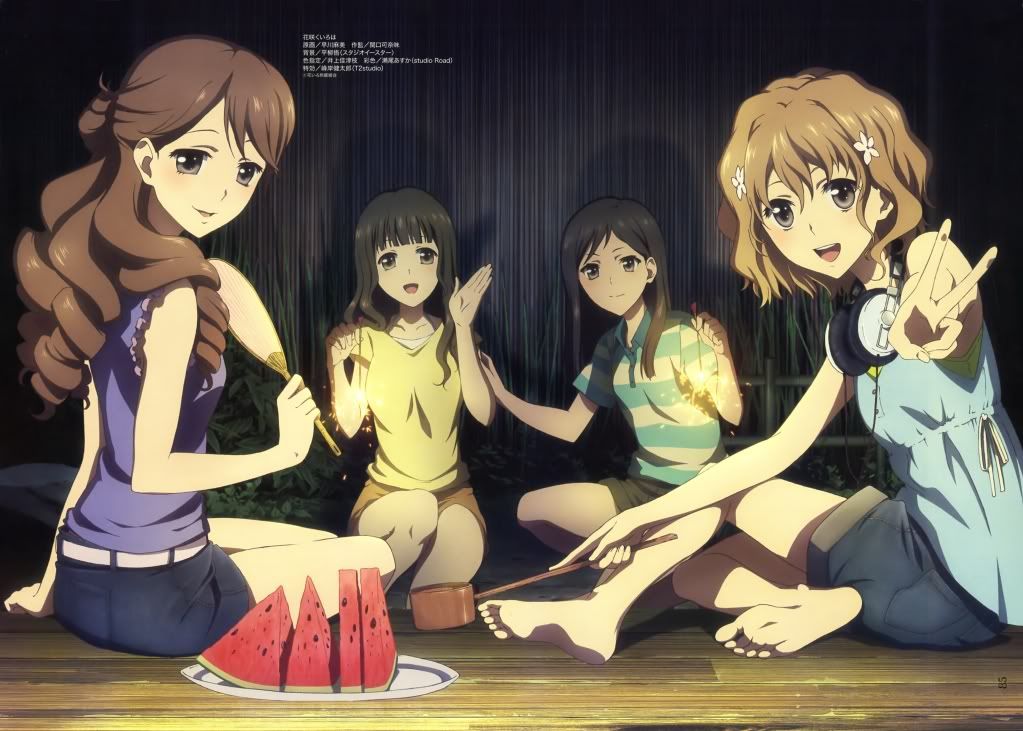
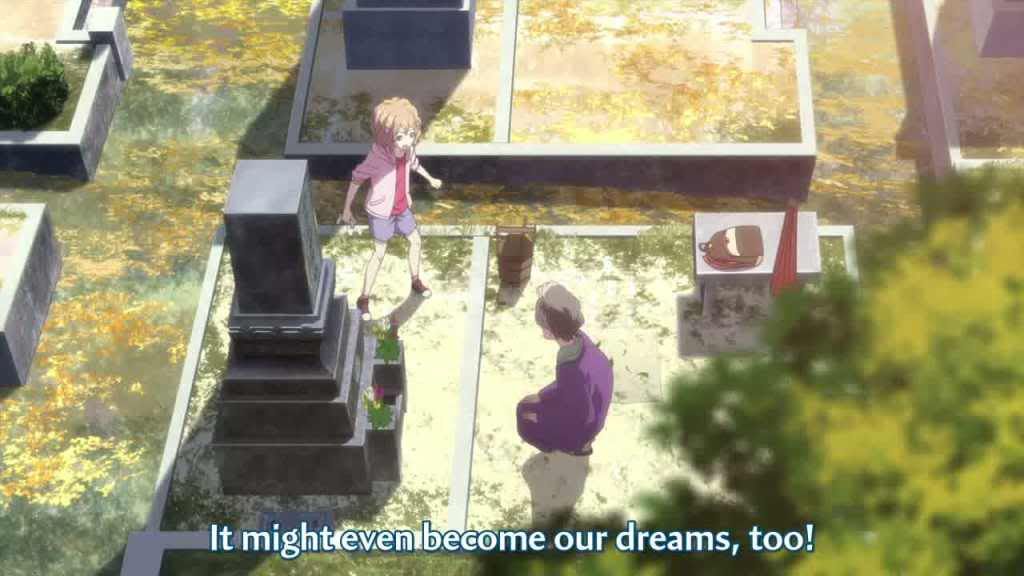
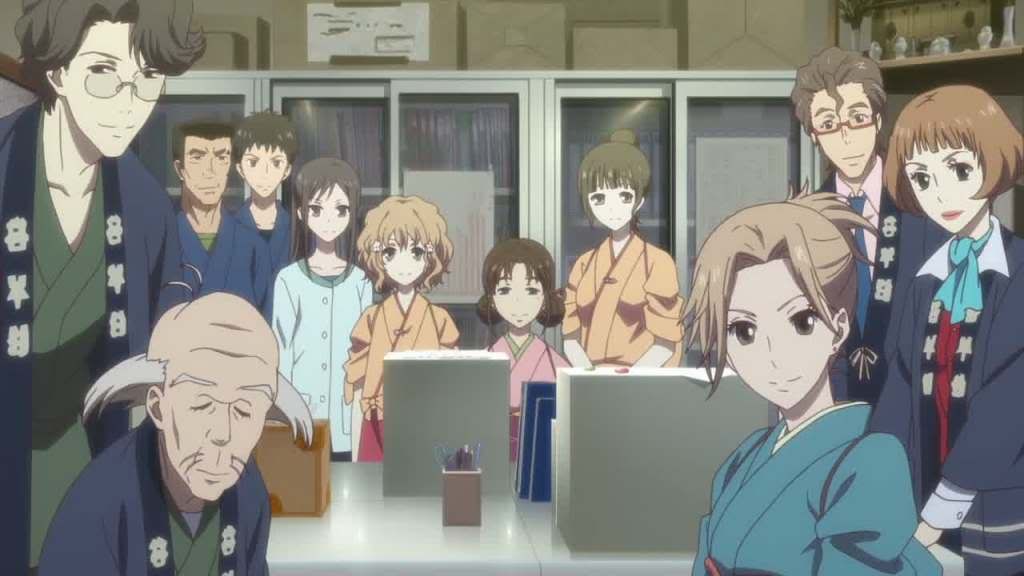
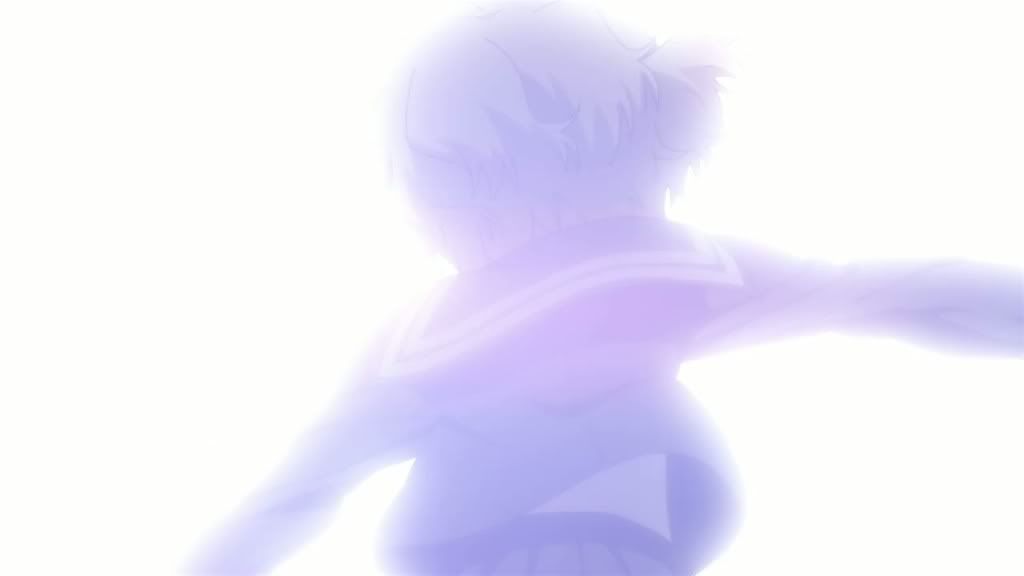
LOL, Seikon no Qwaser. Perhaps one of the most bizarre mangas I've ever tried to read. I got to chapter 3 and couldn't read it anymore.
ReplyDelete